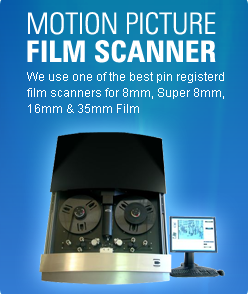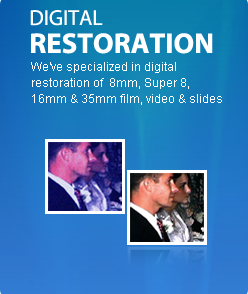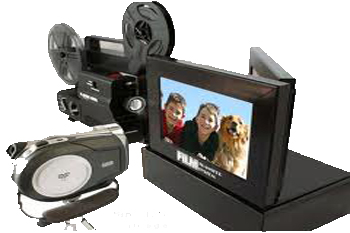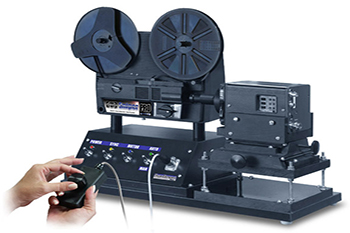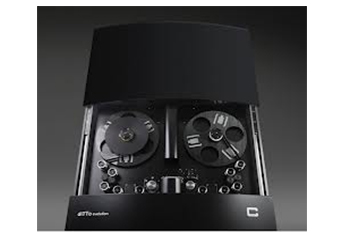
Film Conversion Equipment
Film Scanning and Film Transfer Equipment Types
The type of film scanning machine used for your 8mm, Super 8 or 16mm film conversion will have as much of an impact on the quality you receive as the resolution of the scan itself will. For example, if you wanted to digitize a photograph and tried doing it two different ways. You first put the photograph down on a table and took a picture of it using your smart phone or camera. Then you took the picture and scanned it using a flatbed scanner. If you compare the two side by side on your computer it will become really obvious that the flatbed scanner produced a digital image as good as the photograph. However, the picture you took with your phone or camera does not look close to the quality of the original photograph.
The same goes for scanning your 8mm, Super 8 or 16mm film. The real-time and frame by frame machines below are using a camcorder to take a picture of your film. The motion picture film scanner and Datacine machine are scanning the film. The results will be significantly different.
Film Conversion Equipment |
|
Real Time
|
|
Frame by Frame
|
|
Professional Film Scanners
|
|
Equally important as resolution is the type of film transfer. There are a few basic types of film transfer processes. More than 80% of the companies out there today use a real-time transfer. Any type of real-time film transfer will result in video that is 40-50% worse than the film’s current condition.
The film transfer processes above are the basics types and do not include any restoration by themselves. Restoration comes in many different capabilities from color and exposure correction, to grain elimination, to stabilization
Bethlehem Fun Facts: The Lehigh Valley region includes Bethlehem, Easton and Allentown and is the third largest metropolitan area in the state. The city includes three major sections and they all feature locations included in the National Register of Historic Places. Bethlehem is known as Christmas City and during the Christmas season tourists arrive to see the prominent display of light collections. Bethlehem, Pennsylvania, in Northampton county, is 47 miles N of Philadelphia, Pennsylvania.
Pennsylvania Fun Facts: One of the original 13 colonies, Pennsylvania was founded by William Penn as a haven for his fellow Quakers. Pennsylvania’s capital, Philadelphia, was the site of the first and second Continental Congresses in 1774 and 1775, the latter of which produced the Declaration of Independence, sparking the American Revolution. After the war, Pennsylvania became the second state, after Delaware, to ratify the U.S. Constitution.
